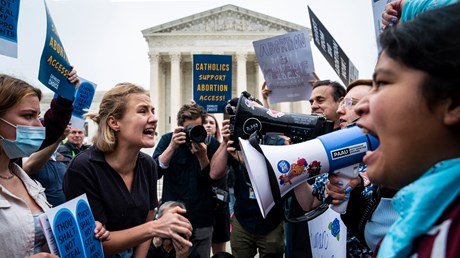As Christians, we must not let political allies selectively dictate who our neighbors are.

This piece was adapted from Russell Moore’s newsletter. Subscribe here.
From all indications, the Supreme Court seems poised to overturn the almost-50-year precedent enshrining legal abortion as a constitutional right. As expected, this does not sit well with those who support Roe v. Wade (which is much of the country, according to most polls).
Some are suggesting this is a manifestation of a kind of soft theocracy—that those of us who are pro-life are now imposing our religious views on the rest of the country. For others, the charge is not that pro-life Americans are too consumed with abortion, but that abortion is just a stalking-horse for the real issues, which are white supremacy and Christian nationalism.
The first argument is one that goes back almost to the days of Roe itself: the idea is that most people who oppose abortion do so because of a religious commitment. Sure, there might be an atheist pro-lifer here or there, the argument goes, but most people at the March for Life or working at the crisis pregnancy center near you are Roman Catholics, evangelical Protestants, or, sometimes, Orthodox Jews.
According to this reasoning, to oppose legal abortion is to impose a certain religious viewpoint upon other people, and thus violate the religious freedom of those who don’t believe the fetus to be a human person.
That would be true, of course, if what anyone sought to do was to impose a religious dogma. That’s why I oppose, for instance, public school teachers offering a gospel invitation at the close of a class period or municipal governments declaring that the Trinity is the truth. A religion cannot and should not be coerced.
I believe in religious freedom for everybody—Jews, ...
from Christianity Today Magazine
Umn ministry


.gif)

.gif)
.gif)
